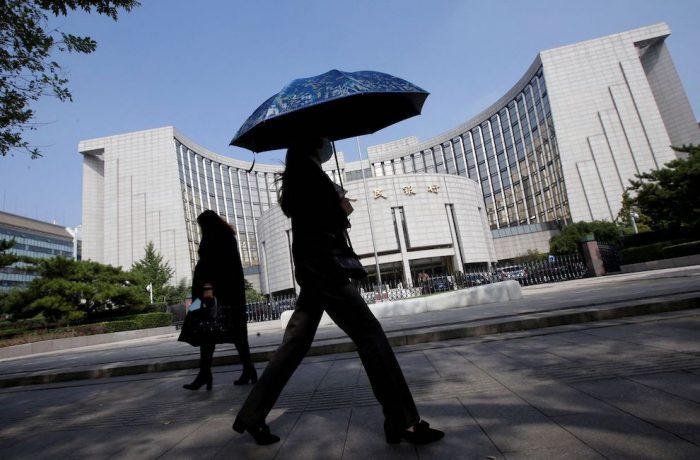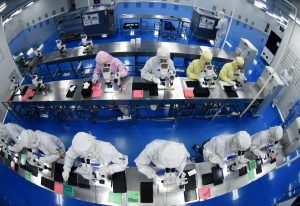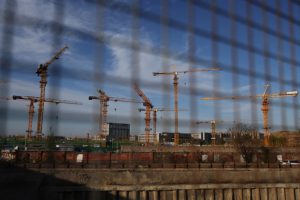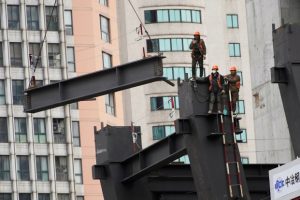China stocks opened down on Monday, as market participants shrugged off a cut in the reserve requirement ratio that fell below their expectations, saying it might not be enough to reverse economic slowdown.
Unexpectedly strong gross domestic product data for the first quarter of 2022, not heavily affected China’s worse Covid-19 outbreak in two years, also failed to lift the market.
The CSI300 index fell 0.9%, to 4,150.43 points at the end of the morning session, while the Shanghai Composite Index lost 0.8%, to 3,186.35 points. The Hong Kong market is closed for a holiday.
The People’s Bank of China (PBOC) said on Friday it would cut the reserve requirement ratio (RRR) for all banks by 25 basis points (bps), releasing about 530 billion yuan ($83.25 billion) in long-term liquidity to cushion a sharp slowdown in economic growth.
“This is less than what the market expected, as the PBOC RRR cut has always been 50bps or higher in the past,” said Zhiwei Zhang, chief economist at Pinpoint Asset Management.
“I don’t think this RRR cut (matters) that much for the economy at this stage. The main challenge the economy faces is the Omicron outbreaks and the lockdown policies that restrict mobility,” Zhang added.
China’s gross domestic product (GDP) beat analysts’ expectations with a 4.8% increase in the first quarter from a year earlier, while data on March activity showed weakness in consumption, property and exports affected by Covid-19 curbs.
“We expect a stronger macro policy response in the second quarter to shore up growth, but the impact will be limited in the context of restricted mobility,” Tommy Wu, lead China economist at Oxford Economics, said.
Heightened global risks from the war in Ukraine and, within China, widespread Covid-19 lockdowns and a weak property market have roiled the country’s financial markets, with authorities vowing to stabilise markets and support the economy.
Real estate developers tumbled 4.4%, while banks and brokerage firms both dropped nearly 3%. Non-ferrous metal and new energy vehicles both declined roughly 2% in early trading.
As a growing number of business leaders and analysts warn that a strict zero-Covid policy is triggering economic disruptions, China said on Friday that it will help hundreds of companies in key sectors to resume production in locked-down Shanghai.
Sectors that will resume work include semiconductors, automobiles and the medical industry, the Ministry of Industry and Information Technology said.
Shares in semiconductors and automobiles rose 2.9% and 1.7% respectively, while healthcare firms lost 1.6%, with traders closely watching whether the resumption will be effective.
To reduce funding costs and cushion the slowing economy, China’s interest rate regulatory body is encouraging some banks to lower their deposit rate ceilings, two sources said on Friday.
The move was not mandatory, but lenders who complied would receive bonus points in the macro prudential assessment, a quarterly health check led by the central bank, sources said.
- Reuters with additional editing by Jim Pollard
This report was updated the new details on 18 April, 2022.
ALSO READ:
China Stocks Slide as PBOC Resists Pressure to Drop Rates
China Stocks Delisting from US Pressures Index Providers
China Stocks Boosted by Hopes of Easing Covid Curbs, Stimulus
























